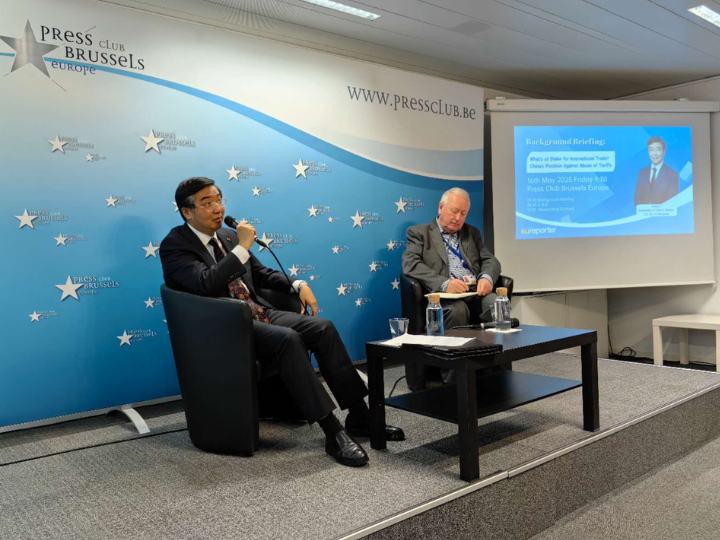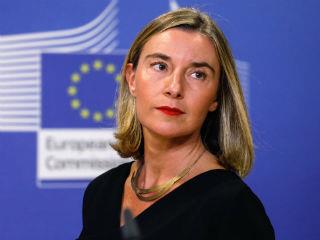by Martin Banks
“No one benefits from trade wars”, the ambassador warned and cautioned again a further escalation in current trade conflicts.
Currently, tensions were high over the tariffs and this has caused “instability and uncertainty”, he noted, “but tariffs are not new and have always been there”.
Amid the fallout from Trump’s tariffs, he also advocated “strong” political and economic ties with the EU, saying the relationship between the two sides had been wrongly portrayed in the media. The debate focused on China’s position against the “abuse” of tariffs and what was at stake for international trade. What was at stake, was in the economic interests “not just of certain countries but everyone” and he warned that, while efforts had been made to defuse tensions in the last few days, “this may not be a one off.” There was, he added, “concern” about long-term stability in economic markets particularly for the major trading nations and markets of the world.
The diplomat, who took up his post last June, said that “despite external pressures” the “good news” was that China’s economy had shown its resilience in a way that “many would not have predicted.” The country’s GDP last year, he told the meeting, grew by 5% which, while not comparing with even higher figures in previous years, “is quite impressive.”
The first quarter of this year showed equally “impressive” growth – 5.4% - and this was across a diverse range of sectors, including housing, finance, digital, semi-conductors and AI. The economy for the remained of the year is expected to reach double digit growth, he said. His country, already the world’s biggest trading nation, saw that much of such growth was being driven by healthy domestic market which meant China is “no longer wholly dependent” on overseas trade for its economic success.
The EU and China together account for almost a third of global trade in goods and services and for over a third of global GDP. In 2023, EU-China trade in goods and services exceeded €840 billion. But the EU has a persistent trade deficit with China, with the EU importing more goods than it exports. In 2024, the EU imported goods worth €517.8 billion.
The EU-China relationship has been marked recently by rising tensions, particularly over the issue of electric vehicles (EVs). China asked the EU to drop its export controls on certain high-tech products, including semiconductors, as well as tariffs on Chinese electric vehicles (EVs). Beijing, in its turn, has been opening up sectors such as telecommunications, banking or manufacturing for foreign investment.
Ambassador Feu Shengchao concluded that “Dialogue is always the best solution. No one will benefit from isolationism or trade wars.”




 By: N. Peter Kramer
By: N. Peter Kramer
